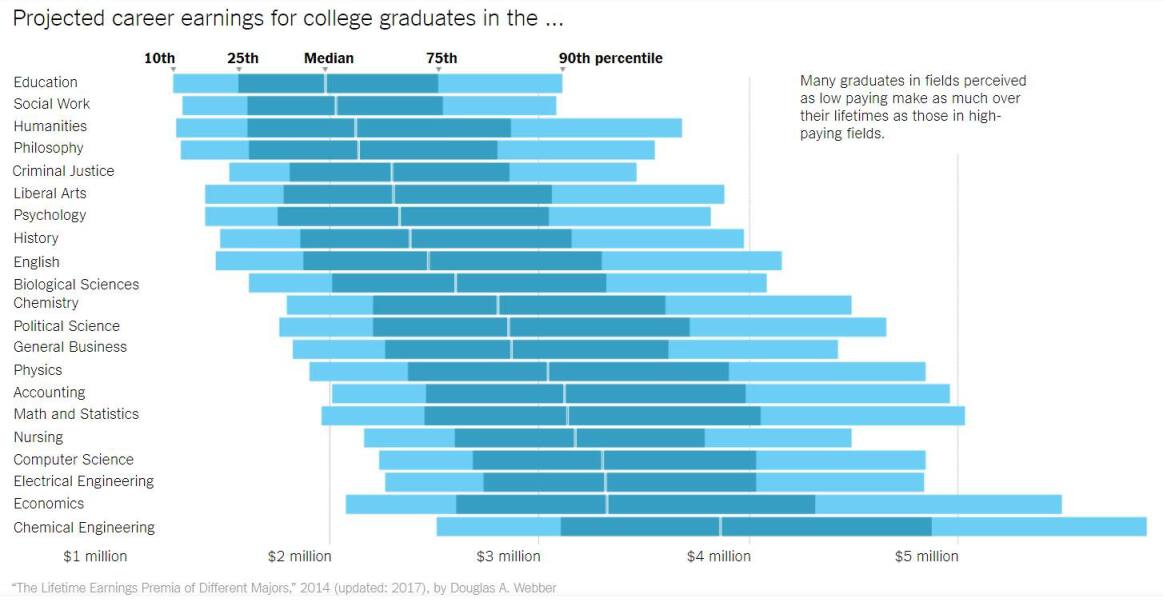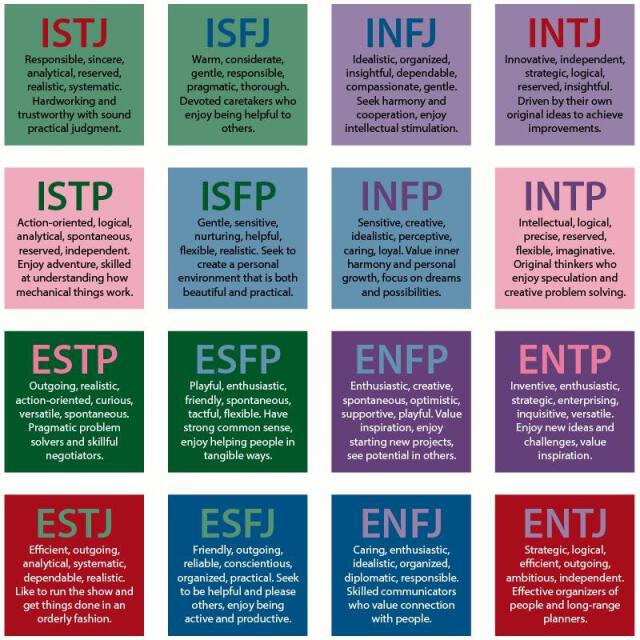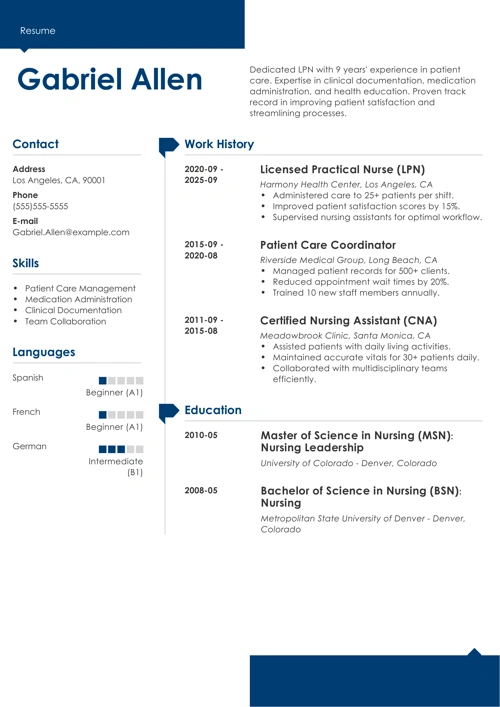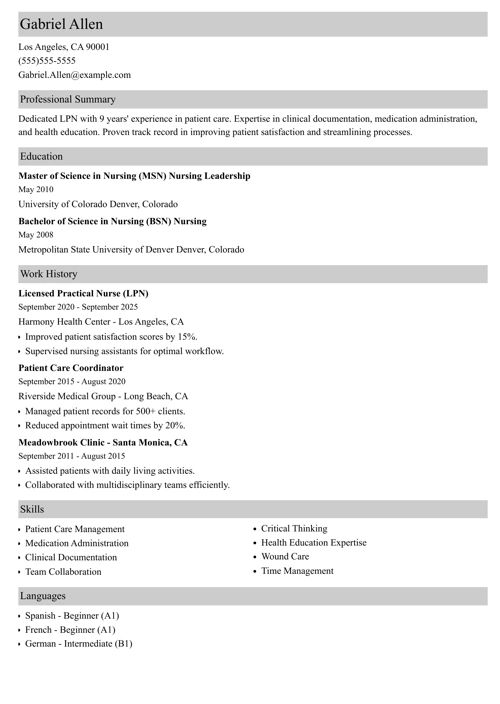So many questions, so little time… What career should I choose? What should I major in? What degree will I be happy with 10, 20, or 50 years from now?
All major decisions (see what I did there). You need to pick a major your future self will thank you for! Pressure’s on! Let us walk you through some tips that should make answering that terrifying “how to choose a major” question a bit easier.
This guide on choosing a college major will show you:
- What is a college major and why choosing the right one is important.
- How to choose a major that is right for you and your future career path.
- How to figure out what you want to major in during your university studies.
Want to save time and have your resume ready in 5 minutes? Try our resume builder. It’s fast and easy to use. Plus, you’ll get ready-made content to add with one click. See 20+ resume templates and create your resume here.
Sample resume made with our builder—See more resume examples here.
Here’s a step-by-step guide on how to choose a major:
1. Identify Interests, Values, Passions, and Abilities
Don’t ask yourself “What major should I choose?” The right question is “What major is right for me?”
The very first step in choosing a major that is right for you is to discern for yourself the areas of study that are important to you. These can be divided into several general categories, which we’ll talk about one-by-one:
Pick a major based on abilities
Abilities are what you are able to do, generally speaking. Understanding what areas you have skills in and which areas could use work is a great way to start the elimination process when choosing a university major.
However, don’t discount the fields where you lack ability just yet; you’ll be able to build those up more during your studies - it is a place to learn, after all.
I am a whiz at mathematical calculations - maybe I’ll study to become an astronaut.
Pick a major based on values
Choosing a major based on your core beliefs will normally lead to work that is more rewarding and encouraging.
However, don’t look too hard at your values when choosing a major, either. University is a time of experimentation and self-discovery, and most people solidify their values during their college years.
I want to help clean up the oceans! Perhaps I’ll choose an environmental policy major.
Pick a major based on interests
Your interests are a fine way of determining which major to choose in college. I mean, if you like doing something, why not get paid for it, right?
Just remember that, as with your values we previously mentioned, your interests may change over time. The years of university make current interests more volatile than the years before and after it.
I love the Renaissance painters - maybe I’ll major in art history.
Pick a major based on passions
At first glance, your passions seem just like interest areas, only stronger. But this is quite an understatement. Passions are areas of deep interest, sure, but they also incorporate your values and abilities into something that becomes a burning, lifelong desire.
Following your passions, whatever they may be, is one of the best ways to choose a major, and it generally has the least second-guessing later on. However, as with your interests, passions may be defined later on, even after university is over.
I long to help underprivileged children - I want to major in pediatric nursing.
Your close friends - who knows you better? Get their input by telling them what you believe your interests, passions, abilities, and values are. They might agree, or they might think you’re crazy. But they might just help you decide what to major in.
2. Consider the Future
In the last chapter, we talked about your current interests, passions, abilities, and values, but that’s the thing - those were such for now.
So, what about the future? Here are some questions to ask yourself to consider the long-term when discovering how to choose a major that’s right for you:
Will you still enjoy it years from now?
You have interests and passions and these ideas that you value. But what’s to stop you from switching positions or changing your mind? Who’s to say how you’ll feel even 10 years from now - not to mention 20 or 30 years from now?
If you’re not so sure how to answer this question, consider something more general or broad in scope - perhaps Literature instead of majoring in Appalachian Literature of the 1940s.
Is it employable?
In other words, will you be able to easily and readily find employment in a related field after you earn the degree? Avoid the possible discouragement from employment rejection later on by considering a broader field of study rather than something super niche.
Will it be around later in life?
We live in a time of unrelenting technological progress and innovation. Artificial intelligence and automation are changing the game right now, and it’ll only be more so in the future.
You might have answered that, yes, it is employable, but will it stay that way for decades to come? Employment staples such as accounting are no longer a safe bet.
Will it pay?
You might be the most adamant while saying that money doesn’t rank high in your decision-making process when deciding which major to pick. But let’s be honest - it does matter.
Take a look at this graphic depicting the career earnings projections of graduates in different fields of study:

Nobody wants to struggle later in life (or at all), financially. And if you’ll want to have a family later, it is important to keep compensation in mind. Also - you’re gonna have to pay back all these student loans!
Need some real-world experience during your studies at uni? Check out this article: Internship Resume for College Students: Guide (20+ Examples)
3. Choose the Right School
If I gave you a napkin with a quickly-scrawled endorsement of your cognitive prowess along with my signature, it’s probably not going to open many doors for you. Likewise, your future diploma and its efficacy rely largely on the issuer.
While there are some schools, like Harvard and Yale, whose alumni are held in high esteem no matter what, most of us attend universities that are great in particular areas. Think NYU for journalism or MIT for robotics.
However, the more selective (read: elite) the school, the more leniency is usually offered to students as far as experimentation of majors and fields of study.
Just take a look at this comparison graphic showing the differences in popular majors at elite schools vs. the more inclusive ones:

At less selective schools, unfortunately, there are many more students pursuing career-based majors, as there isn’t such a strong alumni network or as many professional contacts in each field. Elite schools’ students are also likelier to continue on to graduate studies, giving them more time to hone in on the major that’s right for them.
But don’t let this dishearten you. The great thing about the larger, more-inclusive schools is the sheer volume of courses and certificates offered. As a young adult still looking for your way, this is the ideal sandbox to flirt with different areas of study until you narrow in on the right one.
Once you’ve filtered schools down to the one or few that sound the best for you, take a look at their list of undergraduate programs and majors to determine which specific program suits you.
Pro Tip: Popular majors at many universities often have what’s called “ capacity- constrained admission,” which places a cap on some classes. To increase chances of finding room in the course you desire, make sure that you keep your grades up in any coursework required by your major.
Consider taking a college major assessment test, which helps you decide how to choose a major by asking several dozen questions. For tests to see what major is right for you, check out the “What should I major in quiz” by Loyola or the “college major personality quiz” from ThoughtCo.
Speaking of personality quizzes, a popular one to take is the Myers & Briggs MBTI Personality Type Test, which separates people into 16 psychological types. These often are a great way to figure out if a particular university major, minor, or career choice is right for you.

A chart with descriptions of each Myers-Briggs personality type, created by Wikimedia Commons author J. Beech.
4. Give Yourself Time
If you found this article because you are stressing out about what your college major will be, but you are only still in the 5th grade, relax.
You have time.
Even if you are entering university, most schools and their advisors recommend that you wait before declaring a major. In the U.S., it is common to leave the declaration of your intended major until the end of your sophomore year.
UCLA conducted a national survey in which they found that over 20% of students who had a major chosen upon entering university had already changed their minds by the end of their first year.
If you are nearing that sophomore year’s end and are still undecided as to what you’d like to major in, don’t worry. You’re not the first, and you surely won’t be the last.
Consider taking a semester off to find yourself, or perhaps even a gap year sabbatical, traveling around the world or working full time. This can really put things in perspective for you.
Pro Tip: Many schools now allow students to choose a “meta-major,” which groups traditional majors under an umbrella that spans whole fields, such as business or STEM.
Making a resume with our builder is incredibly simple. Follow our step-by-step guide, use ready-made content tailored to your job and have a resume ready in minutes.
When you’re done, our professional resume builder will score your resume and our ATS resume checker will tell you exactly how to make it better.
5. Get Help
Choosing a major is ultimately your decision to make. However, if you need help picking a major, it’s time to turn to tried-and-true sources of encouragement and assistance:
Meet with Advisors
Who better to help you decide how to choose a major than the college advisors whose main job it is to do so?
Meeting with the university advisor will offer you more in return than just advice on which major is right for you - with their intimate knowledge of the specific university and campus, they can curate just the right course of study for each student.
If you’re researching your major way in advance, you could ask your high school counselor or advisor to guide you with the process. However, they won’t have the detailed experience of the college that the university advisor has.
Book Time with Career Advisors
Many universities (and high schools, even) have career counselors on top of their academic advisors. Meeting with these career advisors might be helpful, as they can give you a long-term view of how a particular major or degree will translate to a career down the road.
Scholastic Semantics: A major is the field which a student focus specializes during the course of their studies. A minor is a secondary field or concentration that often complements the major, but is different than a double major. A college minor also won’t require as many classes and hours as a full-blown major.
Talk to Your Peers
Your friends and peers are often a source of great inspiration and ideas. Though they might not have the overall knowledge like the professional advisors, your friends and peers know what you’re going through. They’re in the same boat, so to speak, so don’t discount their suggestions.
Chat With Your Parents
Your parents - they’ve been there for you these last couple of decades, and so far, they seem to have your best interest at heart.
However, avoid parents’ suggestions if they start becoming too insistent on a particular path for you. You must do what you want to do, rather than worry that it bothers them.
Pro Tip: Parents are often the ones that get disgruntled if their children tells them they’re pursuing a liberal arts degree. However, in today’s atmosphere, degrees such as these are becoming more lucrative, as the boundaries of traditional majors are often too rigid for today’s creative careers.
Will you work to make ends meet during your university studies? Check out this article on how to write your education on your resume the right way: How to Put Your Education on a Resume [Tips & Examples]
6. Spot Any Disadvantages Before Choosing a Major
Imagine the perfect major at your university, complete with tuition and dormitory reimbursement, fun and rewarding studies, and your future life partner sitting beside you. The disadvantage? That scenario doesn’t exist.
Yes, every major that you choose will ultimately have some downsides and disadvantages. The only thing you can do is to be aware of them and to make sure that you can handle when they decide to pop up.
Determine how likely you’ll be to switch majors. As we’ve seen before, many students switch their majors and change their minds throughout their university studies. While it’s not a disadvantage, it could cost more and take more time to achieve the degree.
If likely to switch, how rigid are the prerequisites? If your first choice is something in medicine, but you have an inkling that you might want to change to financial management later down the line, the electives and core classes will probably be completely different, meaning you’ll be starting from the very beginning should you switch, essentially.
Don’t overspecialize. For your undergraduate studies, avoid choosing a major which is too specialized. Your career prospects and job outlook would remain all too narrow.
How connected is my chosen university? You want to pick a major in a college that is well-connected to local contacts in your chosen field for that real-world experience. Any college too rural or too small may leave you at a disadvantage upon your graduation.
How will I be affected after I finish the program? Make sure that you understand the costs, the future job market, and the locations you may have to relocate to advance your career.
For a full guide on how to write a resume for students, see: Complete Guide to Writing a Student Resume [13 Tips, Examples]
7. Change Your Mind
As with relationships and the latest billboard hits, you may decide that the major you chose is not right for you anymore.
Don’t worry about this - you’re not alone. According to the NY Times, a whopping 61% of the students at the University of Florida change their minds on their major by the end of the sophomore year. As you can see, you’d be in the minority if you didn’t second-guess yourself.
One thing to keep in mind is to make sure that you don’t just pick the easiest program out there. Choose a path that will give you a degree that you’ll be proud of and that at least fits somewhat with the idea of the direction you are heading.
8. Do a Reality Check
One quick thing to mention before we end - the reality check. Before pulling the trigger on the major of your choice, ask yourself:
- What kind of job is right for me in the future as a career?
- Will this major I’ve chosen help me towards it?
- What college is right for me for my undergraduate studies?
- Does this college offer a great program for my chosen major?
- Does my chosen major fit my abilities, values, interests, and passions?
- Have I identified all the downsides and disadvantages of my chosen major?
You’re out of high school now, so you can’t afford to base your classes on what’s easy or which class has your crush attending it. Be real with yourself.
Pro Tip: Don’t worry, you can still change your mind later, of course. But no matter when you choose your major, and how often you switch it, be sure to question your decision with these questions first.
9. Read More and Reconsider
Here are some carefully curated resources to read after finishing this article. These will give you a better idea how to choose the best major that is right for you:
- What Colleges Want in an Applicant (Everything) - New York Times
- Six Myths About Choosing a College Major - New York Times
- Comparison: Return on Investment of Various College Degrees - Discover
- The Six Classes That Will Make Any College Grad Employable - Forbes
- Graduation rates of first-time, full-time bachelor's degree-seeking students at 4-year postsecondary institutions, by race/ethnicity, time to completion, sex, and control of institution: Selected cohort entry years, 1996 through 2006 - National Center for Education Statistics
Plus, a great cover letter that matches your resume will give you an advantage over other candidates. You can write it in our cover letter builder here. Here's what it may look like:
See more cover letter templates and start writing.
Key Takeaway
When you first start thinking about how to choose a major and which major is best for you, you’ll probably fret over the process, the choices, and getting it right. However, if you follow simple steps, you can be sure to be happy with your decision for years to come.
In a nutshell, here's what you should do when choosing a major:
- Sort into categories - Separate prospective majors into ones which fit your abilities, values, interests, and passions.
- Pick a major that is future-proof - Take an educated guess on which majors will stand the test of time and offer gainful employment far into your future.
- Get help - Talk to the experts, such as career counselors, academic advisors, your parents, and your peers to get a well-rounded view into the direction you should head.
About Zety’s Editorial Process
This article has been reviewed by our editorial team to make sure it follows Zety's editorial guidelines. We’re committed to sharing our expertise and giving you trustworthy career advice tailored to your needs. High-quality content is what brings over 40 million readers to our site every year. But we don't stop there. Our team conducts original research to understand the job market better, and we pride ourselves on being quoted by top universities and prime media outlets from around the world.
Sources
- Major Quiz | Loyola University Chicago
- Graduation rates of first-time, full-time bachelor's degree-seeking students at 4-year postsecondary institutions, by race/ethnicity, time to completion, sex, and control of institution: Selected cohort entry years, 1996 through 2006 | The Institute of Education Sciences





